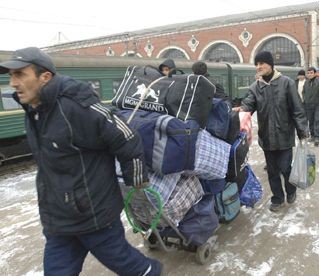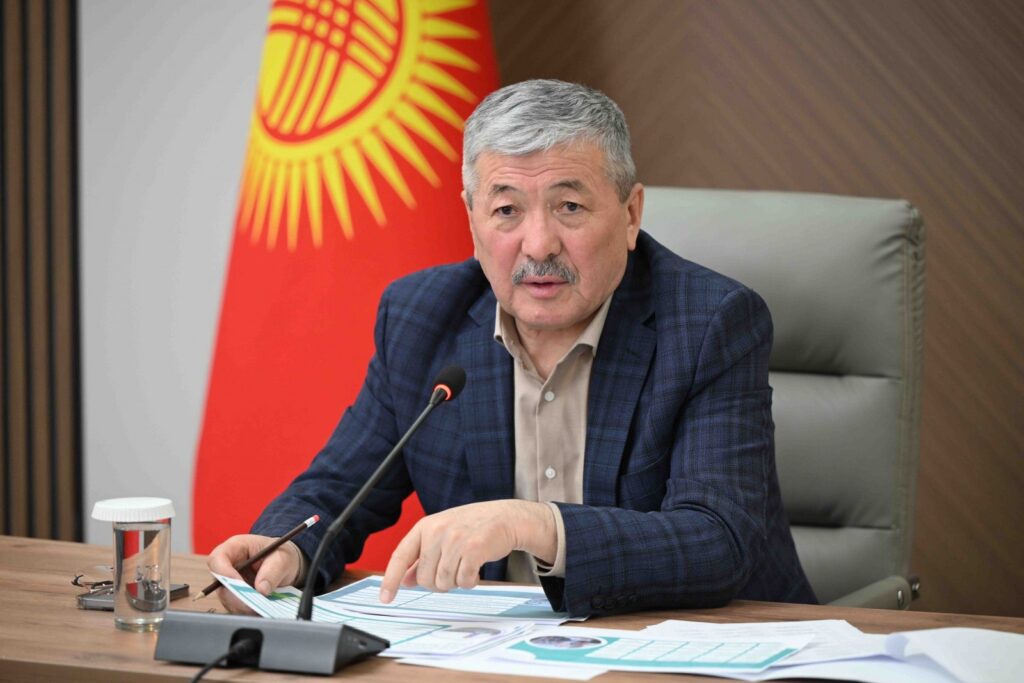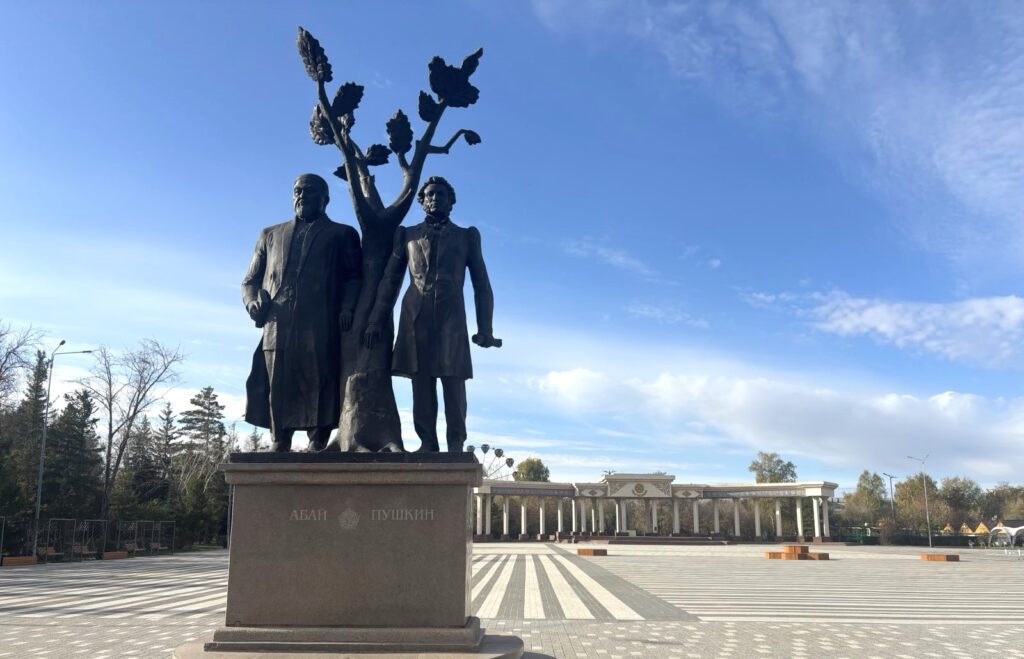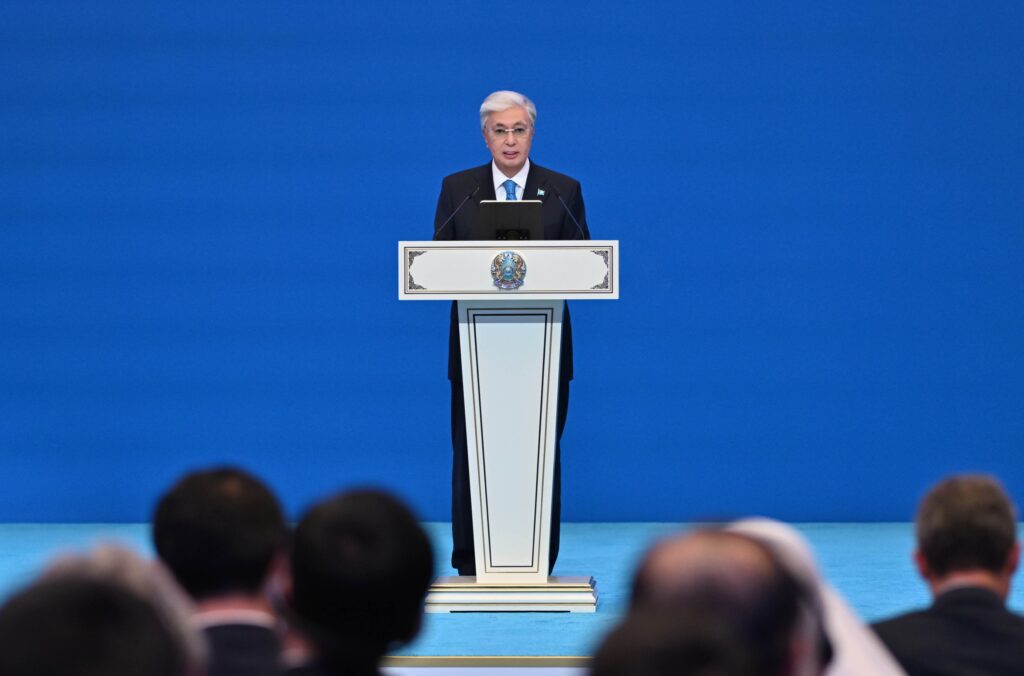BISHKEK (TCA) — After entering the Eurasian Economic Union in August 2015, Kyrgyzstan has joined to the single labor market of Kazakhstan, Belarus, Armenia, and Russia. Kyrgyzstan’s citizens working in Russia no longer need to buy labor patents and take exams on the Russian language and Russia’s history and law. Kyrgyzstan’s university diplomas are recognized in the EEU. After receiving such privileges, more Kyrgyz citizens have left for Russia, as the unemployment at home has forced them to move abroad in search of a better life.
Using EEU privileges
Kyrgyzstanis have begun displacing labor migrants from Tajikistan, not an EEU member, in the realtor, restaurant and construction sectors in Russia. Kyrgyz people are now hired not only for low-paid positions. Specialists that received higher education in Europe or USA, and have experience in the banking sector, are hired by Russian financial companies.
Due to the simplification of trade rules after Kyrgyzstan’s accession to the EEU, Kyrgyz businesspeople are now more active in Russia. According to Russian media, there are more than 20 medical centers in Moscow established by citizens of Kyrgyzstan, and many Kyrgyz firms sell construction materials. The Kyrgyzstan Trading House company delivers beverages under the Shoro brand, jams, dried fruit, honey, rice, and fresh vegetables and fruit to Russia.
The single labor market is one of the main economic arguments in discussions on joining of Tajikistan to the EEU. The largest number of work permits for Tajik migrants was issued in 2014 (626 thousand permits), and their number reduced to 251 thousand in 2015 due to Russia’s tightened immigration legislation and the ruble devaluation.
According to a UN forecast, the Tajik population will increase by 2.8 million in 35 years, and the country will experience a lack of jobs even with a rapid growth of its economy.
No competition
Migrants do not yet pose a serious competition to Russian workers. CIS countries’ citizens make up for labor shortages in areas where the Russians do not want to work. In addition, labor migrants do not receive social guarantees and benefits local workers enjoy.
In the peak of the harvest season, Russia’s regions lack drivers, loading and warehouse workers, and people from the EEU countries are gradually filling this gap. Immigrants from the CIS countries are hard-working and ready to work overtime but their salaries are lower than the salaries of Russians in similar positions. Official data on the average earnings of labor migrants are not accurate due to a high share of the shadow economy.
In comparison with Russia, other countries are now less attractive to labor migrants because of the more stringent requirements for the workforce. However, if Russia’s economic downturn continues, Turkey and Iran, as well as the Middle East and South Korea, may become new destinations for mass labor migration.
Fire in a Moscow printing house
On August 27, a fire killed 14 citizens of Kyrgyzstan in a printing house in Moscow. All the victims were young women, mostly of 18-25 years. An investigation is underway to identify the conditions and causes of the accident and to establish employment relationships.
About 110 people worked at the printing house, and more than 70 of them were from Kyrgyzstan, Russian media reported.
Russian authorities are now investigating whether employment relationships of women killed in the fire were legal. It is already known that those women worked without contracts. Kyrgyz citizens do not need to buy patents, but have to sign labor contracts.
The owner of the printing house is on the run to avoid prosecution. A criminal case was opened against him for violation of the fire safety rules.
It was not the first case when a fire killed migrant workers in Moscow and the Moscow region. In January 2016, 12 people were killed in an illegal sewing workshop located in an old residential building in which a migrant hostel with mostly immigrants from Kyrgyzstan was also located. In 2012, gas cylinders exploded and killed three citizens of Kyrgyzstan in a restaurant in the southwest of Moscow. That same year, a gas explosion in an illegal bakery killed citizens of Tajikistan and Armenia.
FMS blacklist
More than 119 thousand of Kyrgyz citizens have been blacklisted by the Federal Migration Service of Russia due to illegal employment.
About 76 thousand of Kyrgyz citizens were removed from the blacklist in 2015, and 6.7 thousand from the beginning of 2016. However, 6.5 thousand of new labor migrants are now banned to enter Russia due to violations of Russian migration legislation.
President of Kyrgyzstan Almazbek Atambayev sent a letter to Russian President Vladimir Putin with a request to consider an amnesty for the blacklisted Kyrgyz citizens on the occasion of the 25th anniversary of Kyrgyzstan’s independence marked on August 31.








